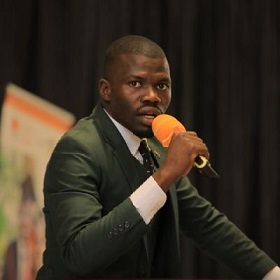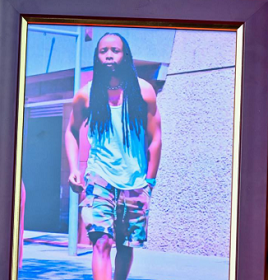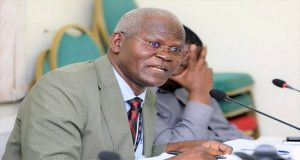
By Executive Editor
A report (titled the cost of politics in Uganda) first published by the Westminister Foundation fr Democracy on October 29, 2023 indicates that candidates in the 2016 primary and general elections in Uganda spent an average of Shs 465 million (US$ 136, 084) to run for Parliament and UGX 237.5 million (USD 69,505) to run for Local Council V, the research found. This means that a candidate aspiring for parliamentary office spent in campaigns up to 210 times the average income of a Ugandan. In a country where one in five people are classified as “absolutely poor” and another two out of five people as “non-poor but insecure, there is no doubt that these costs are not only exorbitant but exclude key segments of the population from effectively running for election.
The report findings clearly illustrated a regional split, with candidates in central and western regions spend significantly more than counterparts in eastern and northern Uganda. It also found that aspirants seeking to run on the ruling party ticket spent significantly more on their campaigns than those standing on opposition platforms.
The study highlighted several factors which drive up the cost of entering politics, including weak enforcement of rules around campaigning, parliamentary privileges and salaries acting as an incentive, voters not understanding their rights, and the ways that patronage continues to characterise politics.
However, University politics has not been spared either.
This can be seen in the recently concluded guild polls at Makerere University. Robert Maseruka emerged victor. Hillary Oremo Odwe (FDC) was Maseruka’s closest rival. However, the latter’s votes turned out a bit less compared to Maseruka’s.
We, have, exclusively obtained that Oremo Odwe had all sorts of support from both the students and the general public. These support were financial and emotional, a source says.
Financially, the public contributed funds to help O.O (as he is known among his peers) to run around during the electoral process.
See contribution list below:
CONTRIBUTION TO SUPPORT HILLARY OREMO ODWEE , A PROMISING LANGO SON FOR HIS 89TH MAKERERE UNIVERSITY GUILD *PRESIDENCY BID*
1.James Okwee Acai 500,000✅
- Ekwire Jaspher 200,000✅
- Akello Holiva 10,000🅿️
- Grace NHS UK – 120,000✅
5.Chair’s bag – 43,000 ( 8pm , 2nd April 2023)
6.Sedrick Otolo -50000✅
7.Dr. PETER OTAI 10000✅ - Dr. Terence Odoch -50k ✅
Ekwire Jaspher- 100k to be delivered in the evening 12/04/23
10.Ojungu Mark 30k✅
11.Prof. JBL Okullo 100K ✅
12.Okello Daniel 20k🅿️ To be cleared by the end of the day
13.
14.
15.
15.
16.
17.
Politics of receiving gifts
This kind of support is actually not new. In the 2016 Presidential elections, the Forum for Democratic Change – FDC – party candidate, Col. Rtd. Dr. Kizza Besigye reportedly bagged about Shs 112 million at campaign rallies by the end of his campaign. The Observer wrote on February 3, 2016 that on January 11, 2016; an overwhelmed Besigye expressed gratitude to his supporters, after receiving cash, chicken, goats and a Bible.
Below, we reproduce The Observer article:
Besigye’s campaign of receiving gifts
FDC presidential candidate Dr Kizza Besigye could have bagged at least Shs 112 million from individual supporters at rallies by the end of his campaigns, writes BENON HERBERT OLUKA.
It is Friday, January 22, 2016 and Besigye is addressing a rally in Kaiso village, Hoima district. Suddenly, in the middle of his speech, a man squeezes his way through the crowd. Once within arm’s length of Besigye’s car, he stretches out his hand and hands the candidate a Shs 10,000 note. Besigye stops his speech briefly to express gratitude.
The man quietly returns to the edges, folds his arms and resumes listening. Around Besigye’s car, more hands stretch out and offer him notes ranging from Shs 1,000 to Shs 20,000. Others give coins. At one point, Besigye even announces that he has received a one-dollar note, to deafening cheers from the crowd.
The Observer later identified the man who started that giving spree as 62-year-old Christopher Kahwa, the manager of Kaiso market. Kahwa said he worked as a guard for 15 years in the wildlife department until he retired. His attempts to secure his pension were in vain. The failure saw him resort to making ends meet by working in the market.
According to Kahwa, his decision to contribute financially to Besigye’s campaign is because he wants to see a government in power that could help resolve his pension problem.
“President Museveni told us that he would give Shs 10 million to anyone who is a military veteran. We filled forms but up to today they are with the Diso [District Internal Security Officer] of Hoima. We have never got even Shs 50,” he says. “So, I kept quiet but I am hurting. Mzee deceived us. Someone ate our money. If Dr Besigye becomes president, I hope that he will pay the veterans. That is why I got my Shs 10,000 and gave it to him.”
CAMPAIGN OF GIVING
Each day, throughout the ongoing presidential campaign, FDC supporters give Besigye all kinds of gifts – each giver motivated by personal reasons. During a rally in Bukedea district on January 13, Judith Akurut Ariong, a housewife, offered Besigye a chicken. She told The Observer that it is all she could offer her candidate of choice.
“I can’t give him money because I don’t have money but I am giving this out of love and happiness,” she said. “Whether he eats it or sells it, I am just happy that he has accepted to receive my gift.”
Judith Akurut Ariong with her chicken for Besigye
Simon Amodoi, a farmer and father of five from Kamod village in Bukedea, offered Besigye a sheep as his expression of gratitude. He said Besigye has the interests of the ordinary Ugandan at heart.
“I gave the sheep to Dr Besigye to say thank you for the suffering he has endured while standing up for us ordinary people, the tear gas that he has had to endure; he has endured so much on our behalf,” he said.
Gift collection has now become a routine part of Besigye’s campaign rallies. Every once in a while, he has to stop mid-sentence, to receive “fuel” or “ettofaali” [brick] from appreciative supporters.
Besigye displays a rabbit he received from Bulo in Butambala district
The variety of gifts took an interesting turn during Besigye’s campaign in the districts of Kiboga, Gomba and Masaka over the past two weeks. He received rabbits, bogoya, tomatoes and two huge mpuuta (Nile Perch). Other supporters don’t have anything to offer beyond polishing his shoes or using their handkerchiefs to wipe his face.
In Ngora district on January 11, an overwhelmed Besigye expressed gratitude to his supporters, after receiving cash, chicken, goats and a Bible.
“I feel blessed in this campaign. I have received a lot of support from you and I praise God for that. Thank you very, very much for all the gifts,” he said. “It gives me more energy to continue working hard. May God bless you all.”
ORIGINS OF THE CULTURE
The practice of showering Besigye with gifts started almost by accident. It began in Mbale on July 23, 2015, as he campaigned against FDC president Mugisha Muntu for the right to be the party’s presidential candidate.
Besigye was addressing his supporters when, midway his speech, the generator powering his public address system ran out of fuel. Immediately, supporters collected money and bought more fuel.
Ingrid Turinawe, the FDC secretary for mobilisation, said making contributions in the open is a new phenomenon that shows how much the people have embraced the party.
“All the campaigns that we have had in the past have been sustained and funded by Ugandans. But now it has expanded to almost everybody and it is not going to stop,” she told The Observer on Thursday.
A supporter polishes Besigye’s shoes at a campaign rally
Turinawe added that while the party has not yet aggregated all the money that it receives in contributions from individuals, they receive at least Shs 1 million from every district where Besigye has campaigned so far.
“We think it is changing the trend of politics in Uganda because Museveni has cheated Ugandans the way he has promoted corruption through vote-buying. People are now putting in their own money to make sure that the struggle succeeds,” she said.
Muntu said the practice of voluntary individual contributions to political organisations was part of the political culture shortly after independence, but it was phased out by the militarisation.
“We have been operating in a country where the political culture was distorted. In the early days of independence, people would support their parties. But because of the breakdown of systems and the contamination of the political culture, people started expecting from leaders and from parties. Now I see a reversal, which is a good sign,” he told The Observer in Kibaale last Wednesday.
Muntu said the rise in the practice is a sign that ordinary Ugandans are keen to play a more active role in determining the direction the country is taking after seeing the demerits of a dictatorial government.
“People are frustrated,” he said. “They have been pushed to the wall and they want to see a way out and, therefore, slowly but systematically, they have started financing the candidate. I hope now that they will graduate beyond that and start supporting parties. This is a culture that we have to keep building and expanding.”
SIGNIFICANCE TO CAMPAIGN
Turinawe said FDC banks the money it receives from supporters and then uses it for budgeted party activities. They sell some of the animals and birds in order to raise money, while others are eaten by Besigye’s campaign team. However, according to Turinawe, the significance of the contributions from supporters stretches beyond providing material support.
Cash that Besigye supporters collected
“We look at the contributions as a show of commitment and willingness of the people to get directly involved with the campaign. When someone contributes a coin, it is obvious that that is a vote. There is nobody who can contribute Shs 1,000 to Besigye’s campaign and then he gets another Shs1,000 not to vote Besigye,” she said.
According to Muntu, the plans that FDC has so far rolled out include setting up and distributing bank accounts and mobile money numbers through which members can make financial contributions to the party. The party also distributes envelopes at its district offices for members to contribute money.
However, according to Turinawe, while those efforts have resulted in some contributions, the returns are still low because people prefer to give money directly to Besigye.
“People are more willing to give money to the candidate than sending it to the party by mobile money or banking it,” she said.
“We have published the bank accounts and mobile money numbers and money is coming in, but people are more excited to hand over money to the candidate. When we are at massive rallies where people cannot walk to the candidate and give him money directly, getting the contributions has been a problem.”






